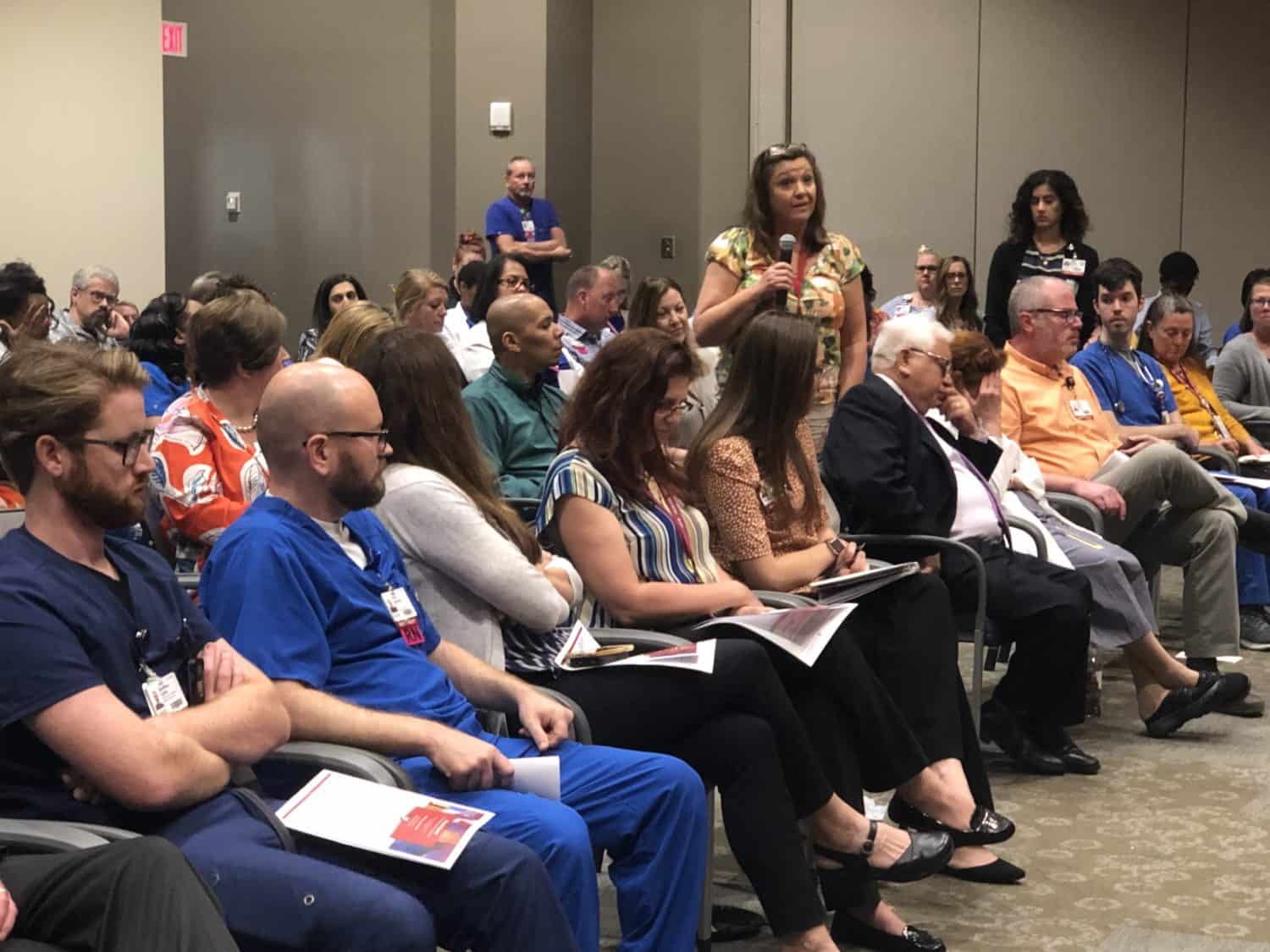Schwartz Rounds Offer Support to Caregivers
| UAMS held its first Schwartz Rounds session June 19 in the hospital’s Lobby Gallery. More than 100 frontline caregivers, physicians and clinical staff attended and participated in the hour-long session designed to bring caregivers together to discuss the human elements of health care.
Schwartz Rounds feature a panel discussion focused on an event at a hospital or a topic of interest to the employees who work there. Following the panel presentation, a facilitator guides audience participants through a discussion of the case and related issues. The goal of the program is to support caregivers and enhance their ability to provide compassionate care.

More than 100 frontline caregivers, physicians and clinical staff attended a June 19 Schwartz Rounds. Photo credit, Kate Franks
The first UAMS session centered around the suicide of a physician at the Psychiatric Research Institute. His colleagues talked about the days surrounding his death, their feelings of anger and guilt, and how they worked to counsel one another and the doctor’s patients.
In a clinical environment where the focus often centers on patients’ need for continued care, panelists and program participants said they sometimes don’t feel they have an opportunity to mourn or express their own emotions.
Several participants shared powerful stories about the loss of a co-worker and times when colleagues stepped in and offered help when they were in need of emotional support.
Jan Shorey, M.D., Jamie Carlin Watson, Ph.D., and Erick Messias, M.D., M.P.H., Ph.D., serve as facilitators for the UAMS Schwartz Rounds. The Schwartz Rounds program was started in Boston in 1995 by health care attorney Kenneth Schwartz, who founded the organization 10 days before his death from lung cancer. He wanted to create a center that would promote compassion in medicine and encourage human connections between caregivers and patients. Today more than 650 healthcare organizations around the world conduct Schwartz Rounds.
Research indicates that participants in Schwartz Rounds have improved teamwork, interdisciplinary communication and appreciation for the roles and contributions of colleagues from different disciplines, as well as increased compassion toward patients and readiness to respond to their needs.
Upcoming UAMS sessions will be held Aug. 21, Oct. 16 and Dec. 18.
